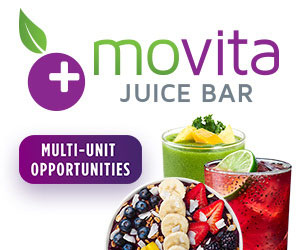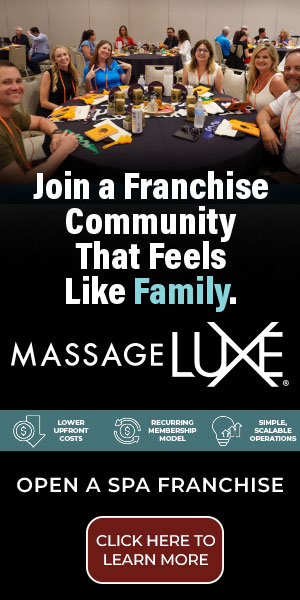Facebook Mistakes
"What is the biggest mistake most companies make using Facebook?"
As more franchisors and franchisees embrace social media to augment their consumer marketing efforts, answers to this question (posted on July 7 on Focus.com) gain in importance. The social media pioneers have gone out, made their rookie mistakes, and learned some important lessons. Perhaps some of their responses can save you some time on the learning curve.
Focus.com is a website where business and technology experts (and anyone else who signs up) post answers to questions posed by members. Topics include marketing, sales, IT, small business, finance, social media, operations, customer service and more.
Below are selected, edited responses to the question above. Names and company affiliations have been deleted, though job titles remain, and some minimal editing was necessary. For the full list of responses and information about the respondents, click here.
Entrepreneur, Online Training Development
Expecting customers to come flocking to your door simply because you now have a Facebook page. Facebook should be only a part of your social media strategy. What was that word?? Yes, strategy. You actually have to have one ;-).
Managing Director/CEO
I think the answer to the question is becoming clearer as time goes by, and the answer isn't limited only to Facebook - although Facebook has some obvious issues. Let's consider all "social media" as a category, first.
A company wants to become involved in "social media" because they read or heard about the results, or have a consultant like me tell them about the results being achieved by others. Just because it's called "social media," however, doesn't mean it's without cost or effort. More than one client has heard me speak about social media results and has thrown up a Facebook site. A month goes by and they call and say, "I'm not getting any hits on my Facebook page. You were really encouraging. What's wrong with what I'm doing?"
Question # 1: How much time are you committing to the process, and who has the assignment?
Question # 2: How many friends do you have on Facebook? How many followers on Twitter?
Question # 3: Have you set up a site on LinkedIn? Have you posted any videos on YouTube?
Nine times out of ten, I find that the effort made is half-hearted, does not follow any rhyme or reason, and isn't targeted to achieve any specific marketing goals. In other words, companies violate their own best practices in marketing in an effort to "get out there." They can do more damage than you can imagine.
So the challenge, more often than not, is that clients expect Facebook to answer all their needs immediately without investing the time, effort, or energy to get the results. After all, with 900 gazillion users, you'd expect you could just build out a page and the world would beat a path to your door, right? Sorry, it doesn't work like that. The mainstream media has hyped Facebook to the point that everyone expects it to solve every ill online, and folks, the cold startling truth hit home when the IPO tanked. It's not the best option for every marketer, nor is it the way that you're going to find the answer to every challenge you face.
Look to social media to help you access people... not businesses. Focus your efforts on people-to-people contact and build your relationships from there.
Self-Employed
There is only one mistake I don't see addressed, and one I constantly see being made. The mistake is, "Too much hype!!!" No matter whether it's Facebook or any other social network site, it's always the same mistake. Far too little, if any interaction - just pitch, sell, hype.
The majority of users, those real people businesses are seeking to reach, are using social media to socialize. Nothing turns me off more than confirming a connection and then being bombarded with commercial tweets, posts, DMs, etc. I react as anyone would: I hit whatever button I need to disconnect.
There needs to be a balance. If you sell a health product, talk about the health issues the product treats or protects against. Do not give in to the temptation many businesses do and tweet or share posts on FB saying "XYZ product is now on sale for half price." Such messages are so common they're ignored, and never shared or retweeted. If someone is interested in the related health issue your product focuses on because they or someone they know suffers from it, they'll find the link in your profile to learn more or make a purchase. And since it's a helpful or informative message you posted or tweeted, it's far more likely to be passed on to other potential customers. Informing first, selling last works for me - and I've been doing online marketing since 1995 and people online have changed very little since then. What surprises me is that many businesses are unable to see this.
There are very simple ways to sell on Facebook while not being overt. Use Facebook as a tool to inform consumers of the sport, health issue, leisure time pursuit, etc. your product or service relates to. Such posts are more likely to be read, also more likely to draw comments or generate dialogue, and far more likely to be shared if they are informative. Let the Facebook page do your selling through the link in the profile, as well as a link in the description of your page. That's all it take to have anyone truly interested in your product or service respond by visiting your corporate website or calling directly. To better enhance a business FB page, I find these four tips are universal.
Creative Director
The biggest mistake may be very different from the most common mistake. From a magnitude or impact perspective, one needs to have a reasonably successful presence on Facebook (and this would be true of other social media, Twitter in particular) before any mistakes can be considered "big" - and, assuming you have a significant following in social media, the biggest mistakes are fairly well known. The Twitter incident with Chrysler last year, where an agency handling their social media dropped an f-bomb in a complaint about how people drive. Or a couple years back when Nestlé decided to put a cease and desist on Facebook users who appropriated their trademarked logos and packages for their profile images - very effectively alienating some of their most loyal brand advocates.
Those are "big" mistakes that stem from the same misconception that perpetuates the most common mistakes. That misconception is simply that social media is anything like traditional media, most specifically, that social media exists for marketers to promote products and services. The most common mistake is failing to recognize that it is controlled by the consumer, and they're not passively absorbing your messages as they might with more traditional media.
The first signal that you're missing the point of social media is when you evaluate your success or failure in numbers of followers, or "likers," as if your Twitter feed or Facebook page was a magazine and those metrics were equivalent to circulation numbers. Tempting as it is, it's a mistake.
Social media is about engagement and community building. In a sense, it's more like direct marketing (mail) because what really matters is the response you get back, not how many you send out. If you go into a social media strategy with traditional media tactics and objectives, you'll probably fail. If, however, you have the resources to engage consumers in the way that is appropriate to the venue you'll succeed.
Notice that "engage" is not merely sending your finely honed message out to the masses, it's offering content or insight that they will value and respond to. The best metrics for measuring social media success are not followers, but responses, comments, and people sharing your content.
If you treat social media like an electronic coupon dispenser or sweeps entry form, you might draw big numbers in followers taking your discount or giveaway, but they'll be no more attached to your brand than your average coupon clipper. You'll see them un-like and stop following once your discount or sweeps content has run its course.
N/A
There are no "quick wins" in social media. Clients who have the patience to stick with it and create real community reap big rewards. You have to take your customers seriously and talk to them.
CEO/Director
One of the biggest mistakes companies make after setting up their Facebook page is not using it. Once the page is set up, it's so important that you regularly update the page with all the relevant information for your fan base to see, like, and share. Once you are socially active on Facebook you will attract a larger fan base.
Promote your Facebook page on your website, encourage your blog readers to share your posts on Facebook, have a Facebook feed, show people that you are socially active. It is also important to engage with your fans, reply to comments, and interact with them. Implement a human element to your Facebook page.
Business Owner
One thing I still see people doing is setting personal profiles for their company to gain friends. This is not good and can cause Facebook to shut down their account. Businesses should set up a business page that gains fans.
Creative Director/Owner
I believe the biggest mistake any company can use with any social media site is to not apply their full marketing strategy principles to what they share. You cannot forgo targeting the right demographics, working a budget, preparing the proper graphics, service levels, etc. The basic principles of marketing cannot be forgotten. Social media should be an arm to the body of your marketing plan. It is the social part of the marketing plan - not something to do instead of working your marketing plan.
My secondary answer is forgetting that it should be social and not hard selling.
President & CEO
(In all the previous answers), I see the common denominator being: ineffective use of social media. Thus, ineffective use of social media is the biggest mistake companies make when using Facebook. To that end, ensuring effective use of Facebook requires business executives to give added thought and consideration to several fundamental questions as they relate to using Facebook, whether it be for their sales and marketing campaign, or for something else company-related. These fundamental questions include, without limitation, What are we trying to accomplish within business by using Facebook? What other strategies and methods have we used or are currently using? Are they working, and if not, why not? How will Facebook help us reach our goals? How exactly will Facebook be managed if used as platform for business-related initiatives? While having a Facebook page is fun and exciting, identifying why and how it's used and managed should be the primary focus.
Share this Feature
Recommended Reading:
| ADVERTISE | SPONSORED CONTENT |
FRANCHISE TOPICS
- Multi-Unit Franchising
- Get Started in Franchising
- Franchise Growth
- Franchise Operations
- Open New Units
- Franchise Leadership
- Franchise Marketing
- Technology
- Franchise Law
- Franchise Awards
- Franchise Rankings
- Franchise Trends
- Franchise Development
- Featured Franchise Stories








 The franchise listed above are not related to or endorsed by Franchise Update or Franchise Update Media Group. We are not engaged in, supporting, or endorsing any specific franchise, business opportunity, company or individual. No statement in this site is to be construed as a recommendation. We encourage prospective franchise buyers to perform extensive due diligence when considering a franchise opportunity.
The franchise listed above are not related to or endorsed by Franchise Update or Franchise Update Media Group. We are not engaged in, supporting, or endorsing any specific franchise, business opportunity, company or individual. No statement in this site is to be construed as a recommendation. We encourage prospective franchise buyers to perform extensive due diligence when considering a franchise opportunity.